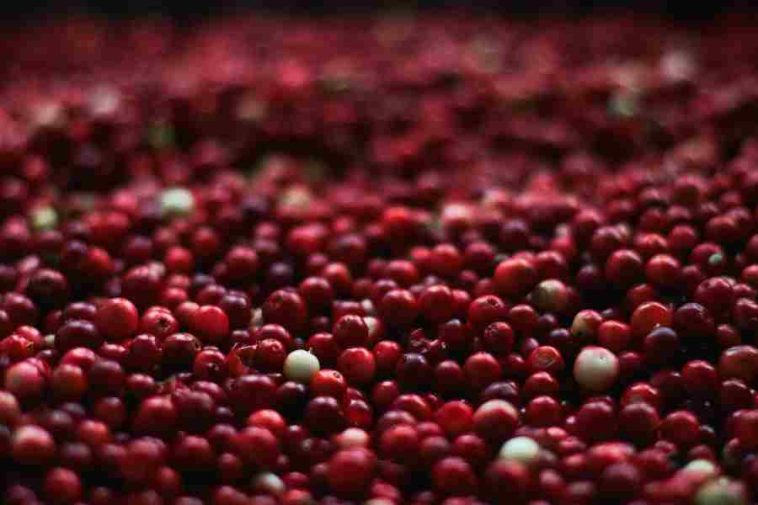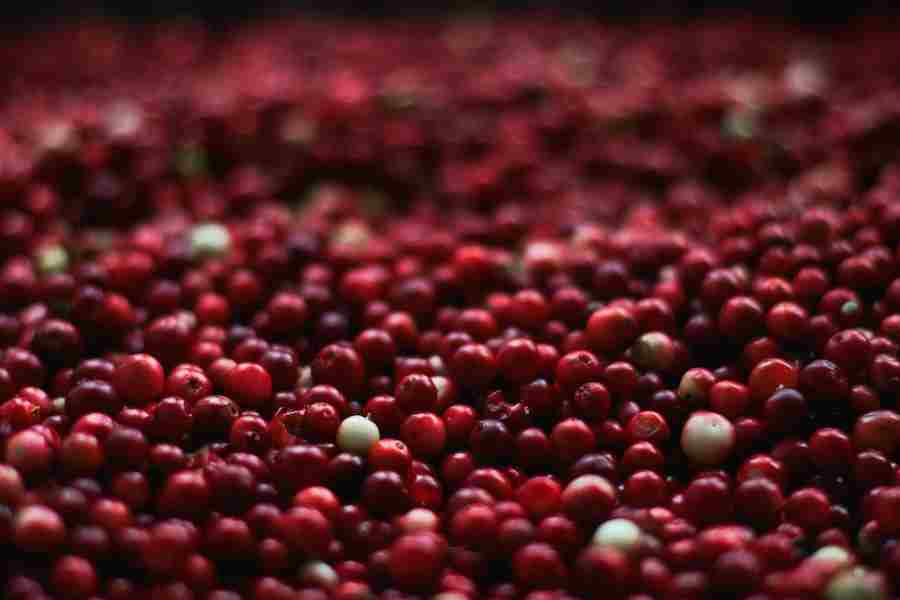Taste plays a significant role in our personal relationships and intimate experiences, particularly when it comes to the realm of sexual encounters. People often seek ways to enhance their taste in order to elevate these experiences. One popular topic of discussion is the potential of cranberry pills to improve taste. Cranberry pills are widely known for their health benefits, particularly in maintaining urinary tract health. However, the question remains: Do cranberry pills actually make you taste better? In this article, we delve into the scientific evidence and anecdotal experiences to shed light on this intriguing topic.
Do Cranberry Pills Make You Taste Better?
There is no conclusive scientific evidence to support the claim that cranberry pills can directly improve taste. While cranberry pills are known for their health benefits, particularly for urinary tract health, their impact on taste remains uncertain. Anecdotal experiences vary, and individual factors such as overall oral health and diet choices are more likely to influence taste perception.

Cranberry Pills And Their Perceived Benefits
Cranberry pills are widely recognized for their perceived benefits, particularly in maintaining urinary tract health. These pills contain concentrated amounts of cranberry extract, which is rich in bioactive compounds like proanthocyanidins. The following are some of the perceived benefits associated with cranberry pills:
One of the primary reasons people turn to cranberry pills is their potential to prevent urinary tract infections (UTIs). Cranberry’s bioactive compounds may inhibit the adhesion of certain bacteria, such as Escherichia coli, to the urinary tract walls, reducing the risk of infection. While research on the effectiveness of cranberry pills for UTI prevention is mixed, they are often used as a natural remedy or as part of a preventive strategy.
Cranberries are known for their high antioxidant content, and cranberry pills offer a convenient way to harness these benefits. Antioxidants help protect the body against oxidative stress and damage caused by free radicals, potentially reducing the risk of chronic diseases like heart disease and certain types of cancer.
Some individuals claim that cranberry pills can promote digestive health, particularly by supporting the balance of gut microbiota. Cranberries contain compounds that may have prebiotic properties, stimulating the growth of beneficial bacteria in the gut and potentially improving overall digestive function.
While cranberry pills are widely used and have been associated with these perceived benefits, it’s important to note that further research is needed to fully understand their efficacy and optimal dosage. As with any supplement, it’s advisable to consult with a healthcare professional before incorporating cranberry pills into your routine.
How Cranberry Pills Are Believed To Help With Urinary Tract Infections?
Cranberry pills are believed to help with urinary tract infections (UTIs) through various mechanisms. While the exact mechanisms are still being studied, the following are some proposed ways in which cranberry pills may aid in preventing or managing UTIs:
- Inhibition of Bacterial Adhesion: Cranberries contain bioactive compounds, particularly proanthocyanidins, which are believed to prevent certain bacteria, such as Escherichia coli (E. coli), from adhering to the urinary tract walls. These compounds may interfere with the bacteria’s ability to latch onto the cells lining the urinary tract, reducing the risk of infection.
- Anti-inflammatory Effects: UTIs can cause inflammation in the urinary tract, leading to discomfort and further complications. Cranberry pills contain antioxidants that possess anti-inflammatory properties. By reducing inflammation, cranberry pills may help alleviate symptoms associated with UTIs.
- Acidification of Urine: Cranberries are naturally acidic, and their consumption or use in supplement form may help acidify the urine. This increased acidity can create an unfavorable environment for bacteria to thrive in the urinary tract, potentially reducing the risk of UTIs.
Potential Mechanisms For Taste Improvement
While there is limited scientific research specifically exploring the direct impact of cranberry pills on taste improvement, there are potential mechanisms through which cranberries and cranberry pills might indirectly influence taste. These mechanisms include:
- Oral Health Benefits: Cranberries are known to have antibacterial properties that can help maintain oral health. By inhibiting the growth of certain bacteria in the mouth, cranberry pills may contribute to a healthier oral microbiome. A balanced and healthy oral microbiome can support overall oral health, including the health of taste buds.
- Impact on Saliva Composition: Saliva plays a crucial role in taste perception by facilitating the interaction of taste compounds with taste receptors on the tongue. Some studies suggest that cranberries might stimulate saliva production, potentially improving taste sensitivity and the ability to detect flavors.
- Antioxidant Activity: Cranberries are rich in antioxidants, which can help protect cells and tissues in the mouth from oxidative damage. By reducing inflammation and oxidative stress in the oral cavity, cranberry pills might indirectly enhance taste perception.
- Improved Hydration: Cranberry pills, when taken with an adequate amount of water, can contribute to overall hydration. Proper hydration is important for maintaining saliva production and preventing dry mouth, which can adversely affect taste perception.
It’s important to note that these mechanisms are speculative and based on the general properties of cranberries. Further research is needed to specifically examine their impact on taste. Additionally, individual variations in taste perception, genetic factors, and overall oral health can also significantly influence taste improvement.
Factors Affecting Personal Taste
Several factors can influence personal taste perception and the overall experience of taste. These factors include:
- Genetic Factors: Genetics play a significant role in taste perception. Certain genetic variations can affect an individual’s sensitivity to different tastes, such as sweet, sour, bitter, and umami. These genetic differences can result in varying preferences and perceptions of flavors.
- Age and Hormonal Changes: Taste preferences can change with age, primarily due to natural physiological changes and hormonal fluctuations. As people age, taste buds may become less sensitive, leading to a reduced ability to detect certain flavors. Hormonal changes, such as those experienced during pregnancy or menopause, can also impact taste perception.
- Overall Oral Health: The health of the mouth, teeth, and gums can affect taste perception. Poor oral hygiene, dental issues, or conditions like dry mouth can alter the taste experience. Maintaining good oral health, including regular brushing, flossing, and dental check-ups, is crucial for optimal taste perception.
- Hydration and Saliva Production: Proper hydration is essential for taste perception. Dehydration can lead to a dry mouth, reducing the ability to taste flavors effectively. Sufficient saliva production is also necessary for the proper dissolution of taste compounds and the transmission of taste signals to the brain.
- Medications and Health Conditions: Certain medications can alter taste perception as a side effect. Additionally, certain health conditions, such as respiratory infections, sinusitis, or neurological disorders, can temporarily affect taste sensations.
- Diet and Lifestyle Choices: Dietary habits can significantly impact taste. Consuming a balanced and varied diet with a wide range of flavors can enhance taste experiences. Conversely, excessive consumption of certain substances like alcohol, tobacco, or spicy foods can temporarily dull taste sensations.
It’s important to recognize that taste perception is highly subjective and can vary widely from person to person. Additionally, the interaction of multiple factors can influence an individual’s taste preferences and experiences.
Practical Considerations
When it comes to improving taste, several practical considerations can be beneficial. These include:
Overall Oral Hygiene: Maintaining good oral hygiene is essential for optimal taste perception. Regular brushing, flossing, and tongue cleaning help remove bacteria, food particles, and plaque that can affect taste sensations. Additionally, routine dental visits for professional cleanings and check-ups can address any underlying oral health issues.
Balanced Diet and Hydration: A well-balanced diet that includes a variety of flavors can enhance taste experiences. Incorporating fruits, vegetables, whole grains, lean proteins, and healthy fats can provide a diverse range of tastes. Staying hydrated by drinking an adequate amount of water throughout the day is also crucial for optimal taste perception.
Incorporating Cranberries: While the direct impact of cranberry pills on taste improvement remains uncertain, incorporating cranberries or cranberry juice into the diet might offer potential benefits. Cranberries are rich in antioxidants and can contribute to overall oral health, potentially indirectly improving taste perception.
Avoiding Excessive Alcohol and Tobacco Use: Excessive consumption of alcohol and tobacco can negatively affect taste buds and impair taste perception. Minimizing alcohol intake and avoiding tobacco use can help preserve taste sensitivity.
Managing Medications and Health Conditions: If you are taking medications that affect taste perception or have health conditions impacting taste, it’s essential to work closely with your healthcare provider. They can provide guidance on managing medication side effects and offer strategies to optimize taste experiences.
Seeking Professional Advice: If you have concerns about your taste perception or are experiencing persistent taste abnormalities, consult with a healthcare professional, such as a dentist or an otolaryngologist, who can provide personalized advice and address any underlying issues.
Remember that taste preferences can be subjective, and individual experiences may vary. What works for one person may not work for another. It’s essential to be patient and explore different strategies to find what works best for you in enhancing your taste experiences.
Conclusion
In conclusion, while there is limited scientific evidence supporting the direct impact of cranberry pills on taste improvement, they are widely recognized for their perceived benefits in maintaining urinary tract health. Taste perception is influenced by various factors, including genetics, age, oral health, hydration, and lifestyle choices. While incorporating cranberries or cranberry pills into a balanced diet and practicing good oral hygiene may indirectly contribute to taste improvement, it is advisable to consult with healthcare professionals for personalized advice and to prioritize overall oral health for optimal taste experiences.
FAQ’s
Are Cranberry Pills A Guaranteed Remedy For Urinary Tract Infections (UTIs)?
No, cranberry pills are not a guaranteed remedy for UTIs. While they contain compounds that may inhibit bacterial adhesion, scientific studies have produced mixed results regarding their effectiveness. It is important to consult with a healthcare professional for appropriate diagnosis and treatment of UTIs.
Can Cranberry Pills Directly Enhance Taste?
The direct impact of cranberry pills on taste improvement is not well-established through scientific research. Taste perception is influenced by various factors, and while cranberry pills may indirectly contribute to taste improvement through oral health benefits, hydration, and antioxidant properties, individual experiences may vary.
Can I Replace Cranberry Pills With Cranberry Juice For The Same Benefits?
Cranberry juice can provide similar benefits as cranberry pills, including potential urinary tract health benefits and antioxidant properties. However, it is important to consider the sugar content in cranberry juice and opt for unsweetened varieties or consult a healthcare professional for personalized advice.
Are There Any Known Side Effects Of Taking Cranberry Pills?
Cranberry pills are generally considered safe for most individuals. However, some people may experience digestive issues, such as stomach upset or diarrhea, when consuming large quantities of cranberry products. Additionally, individuals on certain medications, like blood thinners, should exercise caution and consult with their healthcare provider before taking cranberry pills.
Can Cranberry Pills Improve Taste After Consuming Strong-Smelling Foods?
While cranberry pills are not specifically known to counteract the effects of strong-smelling foods on taste, maintaining good oral hygiene practices, such as brushing and flossing, can help mitigate the temporary impact of strong-smelling foods on taste perception. It is important to note that individual experiences with taste may vary, and personal preferences for taste are subjective.





